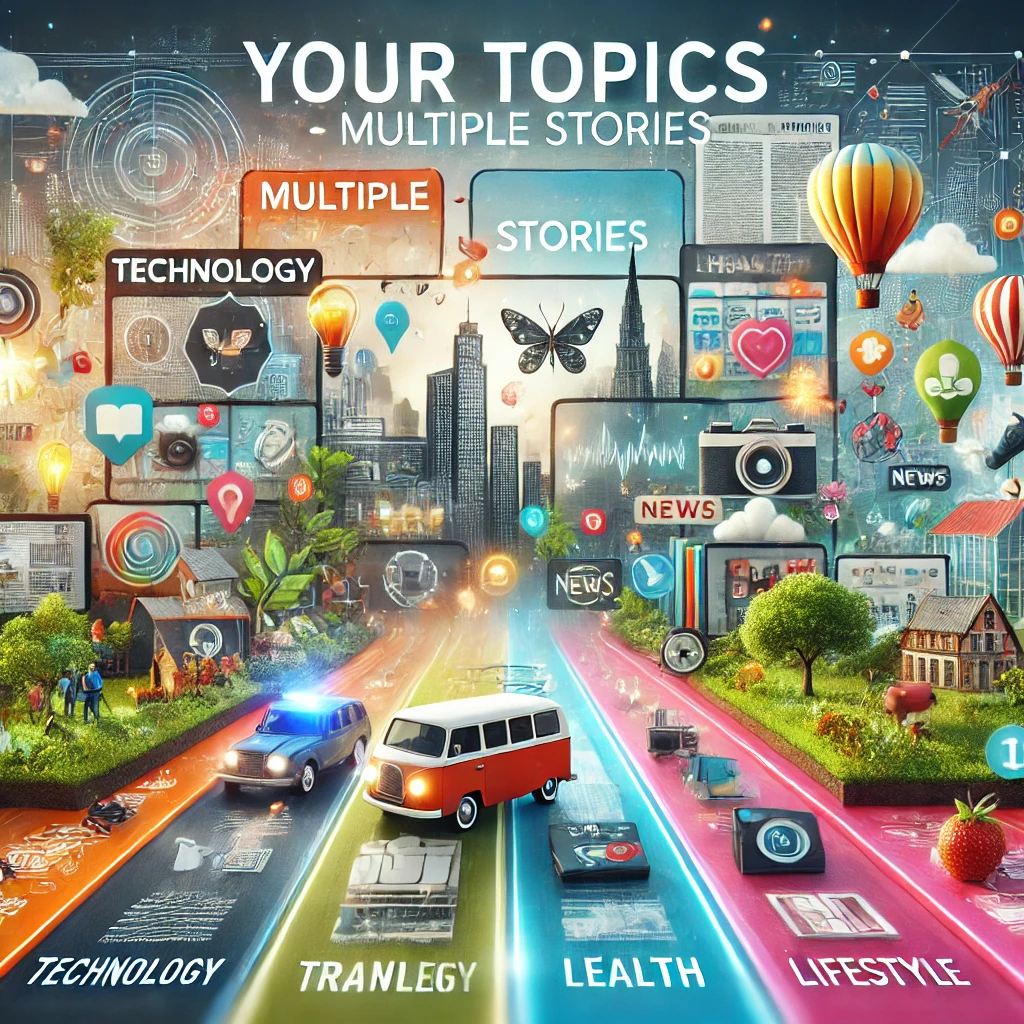In a world teeming with unique experiences, lessons, and insights, stories have always been a bridge connecting diverse realities. They hold the power to transport us, challenge our perspectives, and inspire change. From exploring the depths of human emotions to delving into the socio-political intricacies of modern society, the canvas of storytelling is vast and vibrant. This article delves into “your topics | multiple stories,” presenting a tapestry of narratives that resonate with various aspects of life and culture.
The Art of Storytelling: A Timeless Medium
Storytelling is as old as humanity itself. From cave paintings and oral traditions to written literature and digital media, stories have evolved alongside us. They serve not only as entertainment but as a means of preserving history, imparting wisdom, and fostering connections.
The beauty of storytelling lies in its adaptability. Whether it is a fable teaching moral values, a biography offering inspiration, or a fictional tale exploring uncharted realms, each story contributes to our collective understanding of the world. With diverse themes and perspectives, storytelling becomes a powerful tool for exploring topics that are both universal and deeply personal.
Emotional Resonance: Stories That Touch the Heart
One of the most compelling aspects of stories is their ability to evoke emotions. Consider tales of resilience in the face of adversity. Such narratives remind us of the indomitable human spirit. For instance, the story of a war survivor rebuilding their life serves as a testament to the power of hope and determination.
Similarly, romantic stories often explore the complexities of love, trust, and relationships. These tales resonate with readers because they reflect shared experiences and emotions. Whether it’s the joy of finding a soulmate or the heartbreak of loss, emotional narratives strike a chord, making them unforgettable.
Exploring Socio-Political Themes
Stories that delve into socio-political topics offer a unique lens through which we can understand complex issues. They often challenge societal norms, question injustices, and propose new paradigms. For instance, dystopian fiction like George Orwell’s 1984 or Margaret Atwood’s The Handmaid’s Tale provides a critique of authoritarian regimes and highlights the importance of freedom and autonomy.
On the other hand, real-life stories of social reformers and activists inspire readers to strive for a better world. These narratives emphasize that change is possible, even in the face of overwhelming odds. By exploring such themes, storytelling becomes a catalyst for awareness and action.
Cultural Richness: A Tapestry of Traditions
Another fascinating dimension of storytelling is its ability to capture cultural diversity. Stories rooted in specific traditions, languages, and customs provide a window into different ways of life. They help preserve cultural heritage and promote cross-cultural understanding.
Consider folklore and mythology, which are rich sources of cultural narratives. Tales like the Arabian Nights, Japanese folktales, or African tribal stories carry profound lessons and showcase the unique values of their respective cultures. By engaging with these stories, readers can gain a deeper appreciation for the diversity of human experience.
Science and Technology: Narratives of Discovery
In today’s rapidly advancing world, stories about science and technology have become increasingly relevant. From the thrilling possibilities of space exploration to the ethical dilemmas posed by artificial intelligence, these narratives spark curiosity and debate.
For example, science fiction often explores the intersection of technology and humanity. Works like Isaac Asimov’s Robot series or movies like Interstellar delve into questions about the future of humanity and our place in the universe. These stories not only entertain but also encourage readers to think critically about the implications of scientific advancements.
Personal Growth and Self-Discovery
Stories of personal growth and self-discovery are universally appealing because they reflect the journey of life. These narratives often revolve around overcoming challenges, finding purpose, and achieving fulfillment. They inspire readers to embark on their own journeys of self-improvement.
Memoirs and autobiographies are prime examples of this genre. They provide intimate glimpses into the lives of individuals who have overcome adversity or achieved greatness. By sharing their experiences, these authors offer valuable insights and lessons that readers can apply to their own lives.
Fictional Worlds: The Power of Imagination
The allure of fictional stories lies in their ability to transport readers to entirely new worlds. Whether it’s the magical realm of J.K. Rowling’s Harry Potter series or the intricate political intrigue of George R.R. Martin’s A Song of Ice and Fire, fictional narratives captivate readers by immersing them in richly imagined settings.
Fantasy and science fiction, in particular, push the boundaries of creativity. They allow writers to explore what-if scenarios and address real-world issues through allegory. By engaging with these stories, readers can escape the mundane and embark on extraordinary adventures.
Inspiring Change Through Storytelling
Ultimately, the power of storytelling lies in its ability to inspire change. Stories have the potential to shift perspectives, ignite movements, and foster empathy. Whether it’s a heartwarming tale of kindness or a gripping narrative about social justice, each story has the power to leave a lasting impact.
Consider the #MeToo movement, which gained momentum through the sharing of personal stories. These narratives shed light on widespread issues of harassment and empowered countless individuals to speak out. Similarly, environmental documentaries like An Inconvenient Truth have raised awareness about climate change and motivated action on a global scale.
Conclusion: Embracing the Diversity of Stories
“Exploring Horizons: A Collection of Engaging Stories Across Diverse Themes” underscores the importance of embracing the diversity of narratives. Stories have the power to educate, entertain, and empower. They bridge gaps between cultures, spark conversations about critical issues, and remind us of our shared humanity.
As we navigate an increasingly complex world, let us celebrate the art of storytelling. By engaging with stories from different perspectives and genres, we can broaden our horizons, deepen our understanding, and contribute to a more connected and compassionate society.



